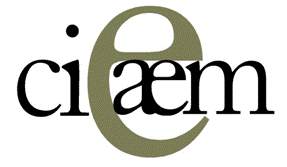
![]()
The theme of this conference refers to fundamental questions about mathematics, their existence, their discovery, and their relations with other sciences, but also issues related to their teaching and learning in the twenty-first century.
The PISA 2012 assesment and analytical framework (PISA, 2012) offers a definition of mathematics based on mathematical relations with the "real world":
Mathematical literacy is an individual’s capacity to formulate, employ, and interpret mathematics in a variety of contexts. It includes reasoning mathematically and using mathematical concepts, procedures, facts and tools to describe, explain and predict phenomena. It assists individuals to recognise the role that mathematics plays in the world and to make the well-founded judgments and decisions needed by constructive, engaged and reflective citizens.(PISA, 2012)
The reality of mathematical objects can be seen only through an act of representation. And even if one believes Freudenthal, if "our mathematical concepts, structures, ideas have been invented as tools to organize the phenomena of the physical, social and mental world" (Freudenthal, 1983, p ix), relationships between mathematics and realities, as well as relationships of mathematics with other sciences, come up against and face problems of translation due to the nature of mathematical objects themselves.
Thus, the relationship of mathematics to realities, being philosophical, social, societal or educational, raises questions that the conference will address through its sub-themes of:
-
Mathematics in relation to other disciplines, by questioning the relationship, at a school level and at an academic level, between disciplines and addressing the question of the reality of objects and concepts that depend on the appropriate epistemology of each discipline
-
Logic in mathematical practices, addressing issues of logic as being part of mathematics and mathematical discovery, as well as the links between logic and reasoning through questions such as: what is the role of logical reasoning? What are the links with argument, evidence? What teaching can promote the acquisition of reusable logic skills?
-
Technology and mathematics experiences, sub-themes in which the mathematical experience will be questioned: is mathematics used by students to solve a mathematical task in a paper-and-pencil environment different from that he or she would use in a technological context?
-
Multiculturalism and reality: teaching realities in multicultural classrooms with multiple cultures can equally be addressed from the perspective of professional cultures, social cultures, ethnic cultures, etc.
Conference' s place: Institut français de l'Education - École Normale Supérieure de Lyon
- Conference's pages (To remove)
- Schedule
- Announcement
- Proposals
- Registration fees
- Theme and Sub-themes
- Mathematics and its teaching in relation to other disciplines
- Logics when doing (or performing) mathematics (to edit)
- Realities, technologies and mathematical experiences (to edit)
- Multicultural mathematics in reality (to edit)
- Bibliography
- Communication abstracts
- Workshop abstracts
- Semi-plenaries' abstract
- Guideline for oral presentation
- Guideline for workshops
- Important dates (to edit)
- Venue (to edit)
- Accomodation (to edit)
- Categories for proposals (to edit)
- Proceedings are available: Aldon, G., Di Paola, B., Fazio, C. (2014). Mathematics and reality, Proceedings of CIEAEM 66, Quaderni di Ricerca in didattica, 24(1), p.388, ISSN 1592-4424.
- International Program Committee: Gilles Aldon (F) Peter Appelbaum (USA), Françoise Cerquetti-Aberkane (F), Javier Diez-Palomar (ES), Benedetto Di Paola, Gail Fitzsimmons, (AU), Uwe Gellert (D), Fernando Hitt (Ca), Corinne Hahn (F), François Kalavasis (Gr), Corneille Kazadi (Ca), Michaela Kaslova (CZ), Réjane Monod-Ansaldi (F), Michèle Prieur (F), Cristina Sabena (I), Sophie Soury-Lavergne (F)
- Organisation committee: Gilles Aldon, Sophie Soury-Lavergne, Réjane Monod-Ansaldi, Christine Paquien, Christine Peyroux, Michèle Prieur
- Lyon:
Plenary speakers:
- Michèle ARTIGUE, Université Paris Diderot (FR)
- Paul DRIJVERS, Freudenthal Institute et Cito (NL)
- Tamsin MEANEY, Malmö University (S)
- Alejandro GONZALES-MARTIN, Université de Montréal
Slides of the conference - Franišek KUŘINA University of Hradec Kralove (CZ)
Attachment:


